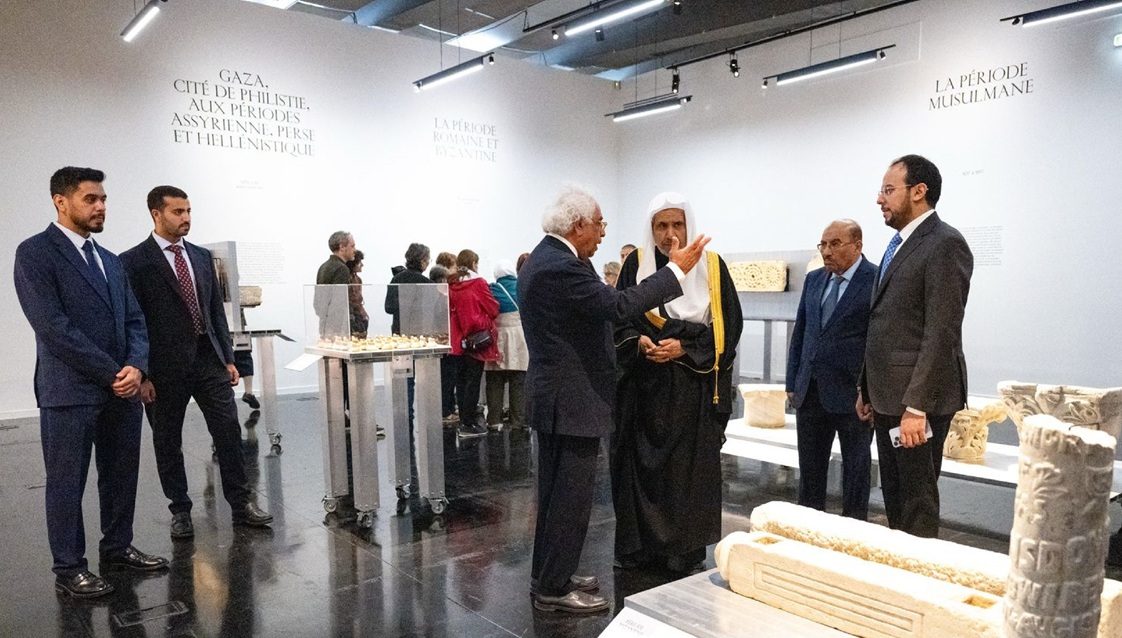
Dr. Mohammed Alissa Visits Arab World Institute in Paris, Highlights Gaza’s Cultural Legacy and Intercultural Dialogue
- Interfaith
- April 12, 2025
- No Comment
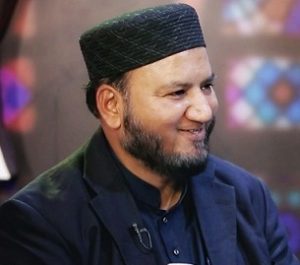
Dr. Mohammed Alissa Visits Arab World Institute in Paris, Highlights Gaza’s Cultural Legacy and Intercultural Dialogue
His Excellency Sheikh Dr. Mohammed Alissa, Secretary-General of the Muslim World League (MWL) and Chairman of the Organization of Muslim Scholars, paid an important visit to the Arab World Institute in Paris, where he was warmly received by the Institute’s President, Mr. Jack Lang.
The visit featured an exclusive tour of a first-of-its-kind museum exhibition that showcases the rich cultural and civilizational history of Gaza. Many of these landmarks were once recognized by UNESCO but have since been destroyed due to ongoing conflict.
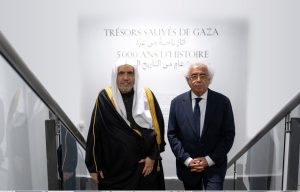
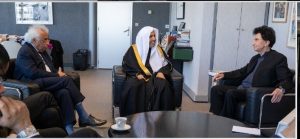
Championing Dialogue and Peaceful Coexistence
The meeting also focused on the Arab World Institute’s continuing efforts to foster cultural understanding and counter narratives of civilizational conflict. These efforts are in strong alignment with the MWL’s global mission of promoting peace, dismantling misconceptions about Islam, and encouraging intellectual openness across societies.
Dr. Alissa emphasized the Muslim World League’s international peace initiative, “Building Bridges Between East and West,” which was launched at the United Nations Headquarters in New York. The initiative reflects Islam’s enduring tradition of dialogue, tolerance, and cooperation with other civilizations throughout history.
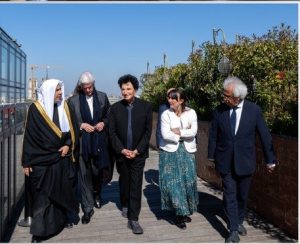
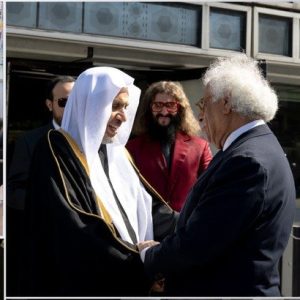
A Beacon of Arab Culture in the West
The Arab World Institute, located in the heart of Paris’ Latin Quarter, is the result of a historic collaboration between King Khalid bin Abdul-Aziz and former French President Valéry Giscard d’Estaing. The vision became reality under the presidency of François Mitterrand, with Mr. Jack Lang—then Minister of Culture—selecting its iconic location.
Over the past three decades, the Institute has emerged as a premier cultural and academic institution, known for:
- Hosting influential forums, exhibitions, and symposiums
- Operating the largest Arabic-language library in the Western world
- Publishing rigorous academic research on Arab and Islamic civilization
- Advancing innovative Arabic language education
- Facilitating meaningful East-West cultural exchange
Dr. Alissa praised the Institute’s pivotal role in presenting an authentic image of Arab and Islamic heritage to global audiences and promoting a spirit of civilizational harmony.




